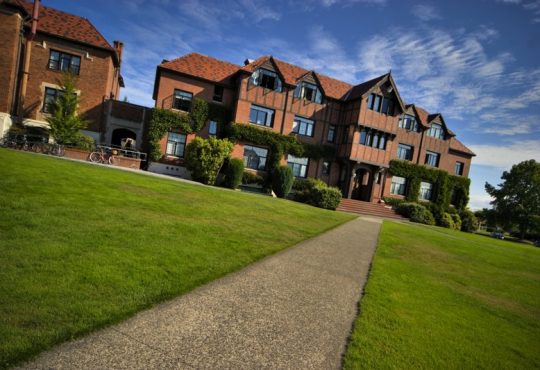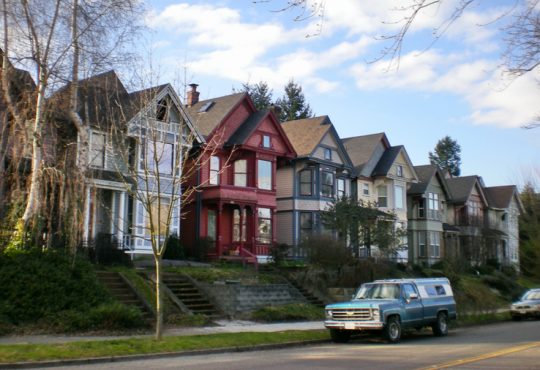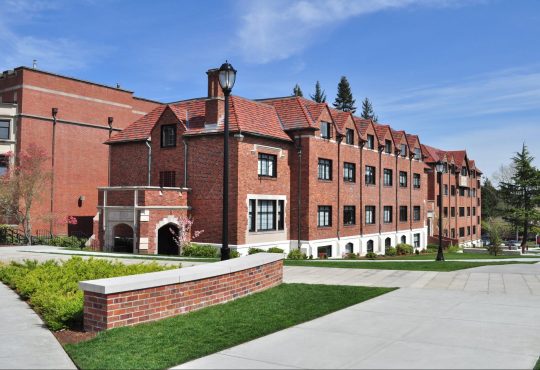According to Campuspride.org, 201 college and university campuses in the United States currently offer gender-inclusive housing. As of 2016, this short list will need to be updated to include the University of Puget Sound. After much planning and careful thought, UPS Residence Life, acknowledging the growing gender diversity on our campus, has decided to add a Transgender and Non-Binary Housing Option for the 2016-2017 school year.
While students may have had doubts about changes Residence Life has made in the past, – namely the decision to extend the live-on requirement to two years, – this change is a very welcome one. According to the National Transgender Discrimination Survey, published in 2012 by the National Center for Transgender Equality, “trans youth experience alarmingly high levels of harassment, physical assault and sexual violence.”
In his article “College Campuses Are More Trans -Inclusive Than Ever, But Still Have A Long Way To Go,” Joseph Erbentraut illustrates some alarming statistics relating directly to the experience of transgender and gender non-conforming individuals in higher education: “Nearly one-fifth of respondents to the [National Transgender Discrimination Survey] also reported being denied gender-appropriate housing in a higher education setting, while 5 percent were denied campus housing altogether. Eleven percent of respondents also reported that they lost or could not receive financial aid or scholarships because of their gender identity or expression.”
These issues, compounded with the fact that colleges and universities often make it difficult to change one’s name on school documents to a preferred name or provide adequate facilities for transgender individuals outside their residencies, provide unnecessary obstacles for trans and nonbinary students in their attempts to finish schooling.
Although our university is taking huge steps to create safer spaces on campus, there is still much work to be done to truly make campus safe. Eli Erlick, creator of Trans Student Educational Resources, claims that, “even the schools that have done a better job than others on trans inclusion have often been more reactionary than proactive, with many schools only being pushed into action after an out trans student has a negative on-campus experience.” Erlick’s statement rings true for Jae Bates, a junior here at University of Puget Sound. After dealing with casual transphobia and exclusion during his first year in the residence halls, Bates appealed to live off-campus, only to have appeal denied. It was after this stressful and frustrating experience that Bates, in conjunction with the Assistant Director of Residence Life, Jenni Chadick, and the ASUPS Director of Student Interests, Austin Brittenham worked together to create the Transgender and Non-Binary Housing Option.
This option allows for non-cisgender students to live in either an on-campus house or one of two suites in the residence hall with other non-cis students. According to Bates, the purpose of offering this housing option to only transgender, non-binary and gender questioning students is to create a community for these students where they can safely discuss and give advice to others concerning gender dysphoria, mental health issues and problems they encounter on campus without fear for their safety.
Bates emphasized the fact that this housing option is not a political statement, but a matter of safety. While some may see this as another way our university is trying to be more “politically correct,” Bates claims the politicization of identity detracts from what is really at stake: the mental, emotional and physical safety of non-cisgender students on campus. He wants to make one things very clear: “transgender students deserve the right to exist safely.”
Freshmen Danny Perkins is one of the individuals most excited for this new housing option. They echo Bates’ concern for safety: “A lot of trans people need private changing spaces, showers and restrooms because being trans in public can be incredibly dangerous. On top of that, some trans people experience dysphoria, which means they’ll want their own space away from other people, just for the sake of privacy around their body. Giving us our own rooms and access to a safe restroom will relieve a lot of the daily pressure of being trans in a cissexist society, while also providing us with a support network within our own community.”
Perkins also addressed concerns about isolating transgender transgender individuals from the rest of the campus community: “Many of us [non-cisgender individuals] are incredibly tired of having to teach those around us about how to give trans people basic respect. Trans housing doesn’t completely isolate us from the rest of the community; cis people will still be able to interact with us like anyone else, the housing simply guarantees when we come home, we don’t have to explain ourselves to anyone.” Likewise, Bates says the Trans and Nonbinary House on Theme Row will work on programming focused around educating our campus community about gender diversity.
Not only are non-cisgender students excited about this new option for housing, but RAs and RCCs see it as a much-needed addition to the on-campus housing community. Nathan Bradley, an RA in Todd/Phibbs says, “In my experience as an RA, I have seen non-cisgender identifying students struggle to fit into the residence life system, which is based around the “traditional” gender binary. I think it is great and absolutely necessary that the administration is creating a safe space that fosters community for these students. To be frank, it should have been done far sooner.” While making our campus safe for all students may take more time and energy, the excitement of student staff in residence life and passionate student activists on campus will ensure steps are taken to create a more inclusive campus.
Jae Bates would like to remind students that this housing option is still available and any interested students should speak with Residence Life.




